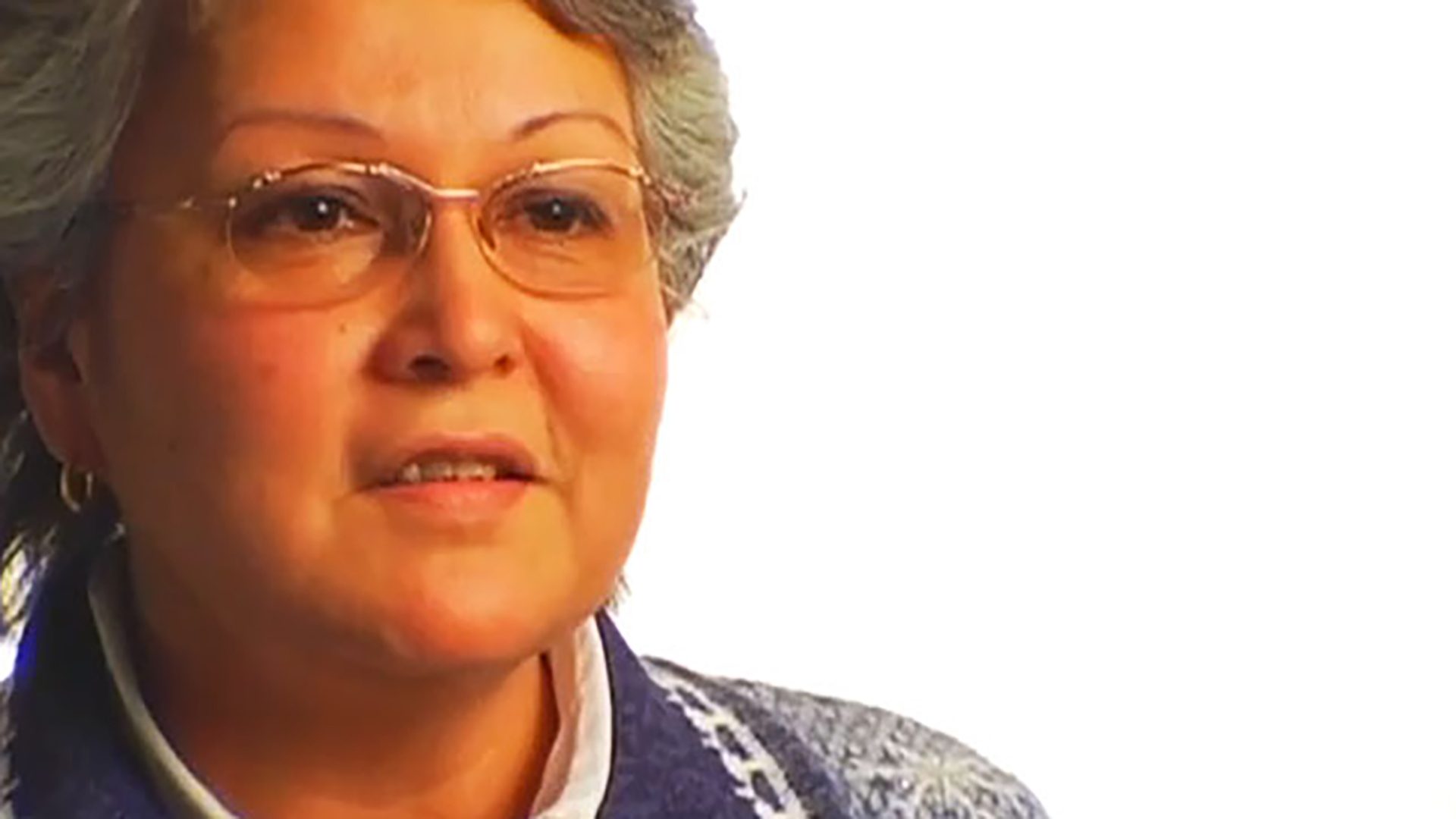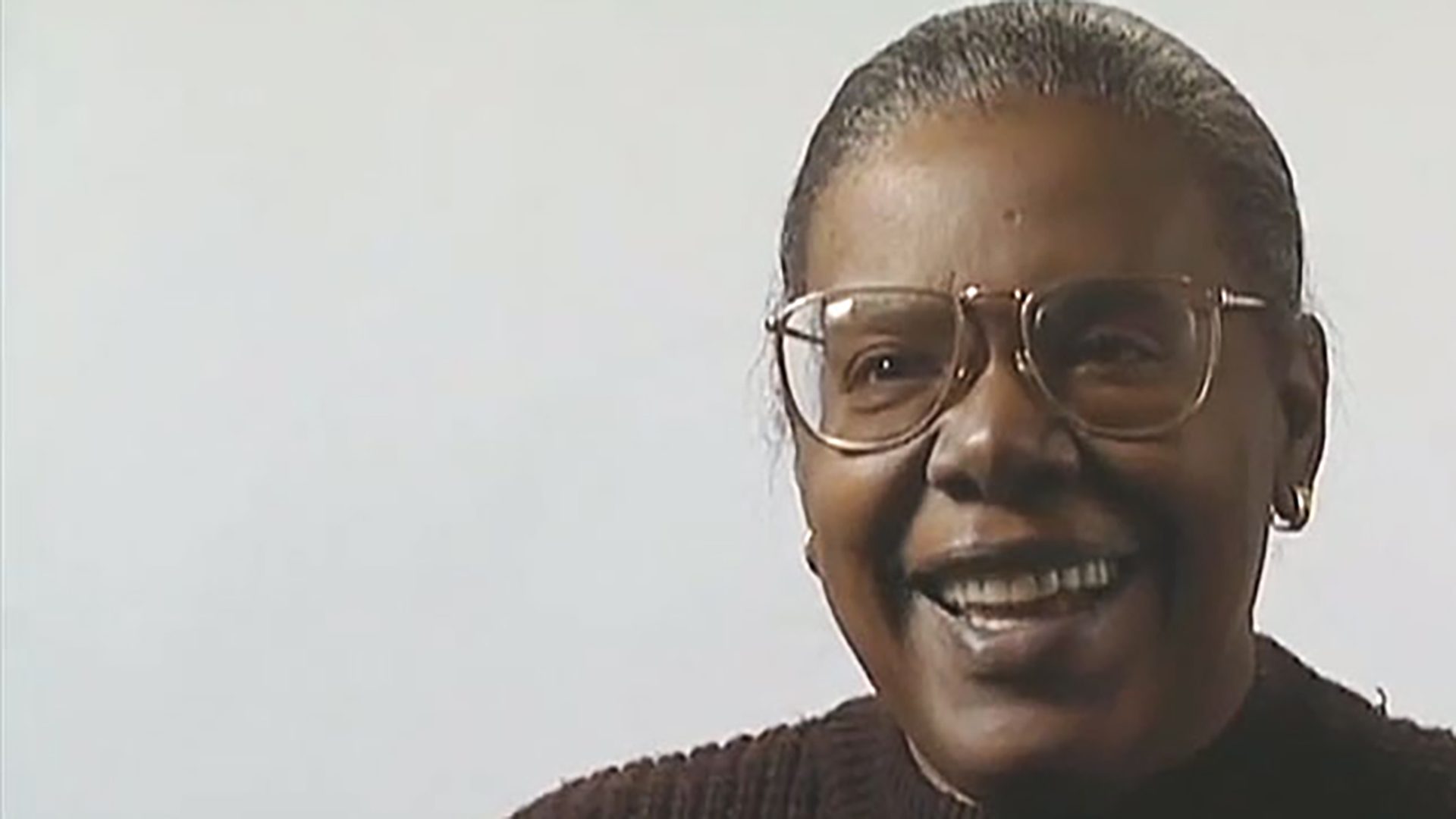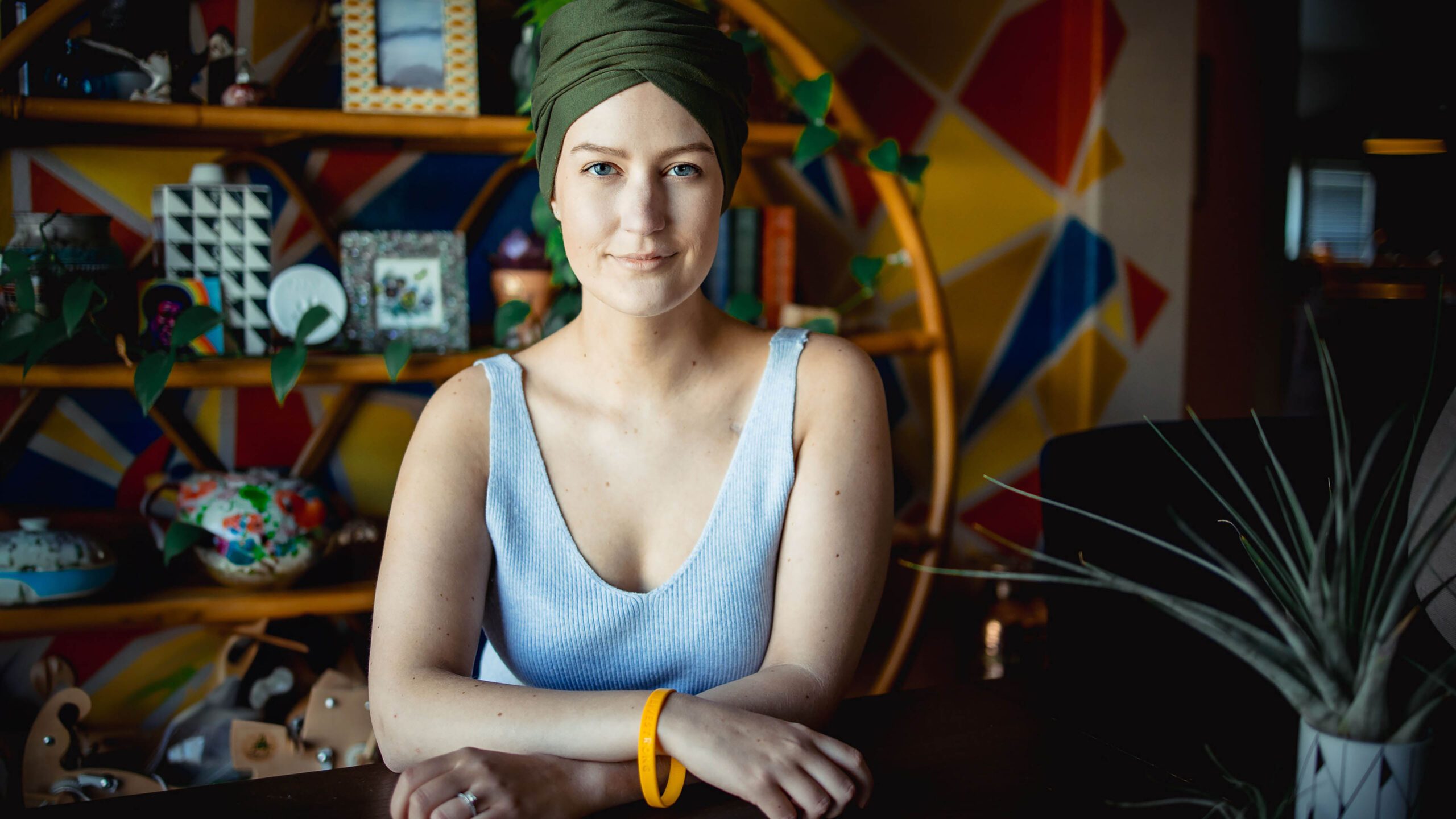Survivor Interview – Joan O.
Joan is a breast cancer survivor. She discusses religion, accessing quality care as an Alaska native, and relationships with her family.

My whole family was there for the surgery. Then I had to do four treatments of chemo. Everybody said I was a trooper going through chemo. I accepted this is what I have to do if I want to live. I kept telling myself, “I want to see my grandchildren grow up.” I started researching on my own to see what I can expect. Everything was overwhelming. During the second chemo treatment, I met this lady who had surgery three days before I did, and she was just terrified. I immediately was drawn to her and gave her support. From the first week after I was diagnosed, I immediately turned the whole thing around and said, “I’m gonna do this. I’m gonna get through this. I’m going to be a survivor, because there are many survivors out there. I’m gonna be one of them.” She didn’t see herself that way. So during my second treatment, I asked if I can have my treatment scheduled with hers. They scheduled us for the rest of our treatments together. Every time we went in, they would say, “Here come the Chemo Twins.” I was really positive going through my treatments. To this day, she and I are the best of friends. She doesn’t live in town, but we talk to each other all the time.
I had the support of my five children, and my youngest daughter was there the whole time. To this day, she’s still taking care of me, or trying to. I told my husband and never had any support from him. He wouldn’t talk to me. I don’t know what his fear was. As I was going through my surgeries, my family doctor said her mother had breast cancer and her dad did the same thing to her mom. He would drive her to her appointments, but he wouldn’t go in with her. My husband just clammed up and wouldn’t even talk to me.
During chemo, I’d be sick for about a week. I’d get up and force myself to eat. I couldn’t move. I didn’t want to do anything. But I had my granddaughter. She’s nine now. I’d be so sick, and she’d call me, and I’ve always jumped every time she ever said, “I want to come to Gran’s house.” We’d run and pick her up. She spent a lot of time with us. She’d come and spend the night and then we’d take her back home the next day. She did that throughout my treatment. This one day, she says, “Gran, you know why I always come over here?” I said, “Why?” She says, “‘Cause you’re sick and you’re all by yourself, and I want to be here with you.” She was six at the time. Because my husband is a commercial fisherman, he’s gone for the summer. My boys fished with him, and my other two daughters live out of town. So I was home alone going through my treatments. She helped the healing.
I have very strong spirituality. I believe God gives us only what we can handle. I believe in prayer. Prayer is so powerful. I was thanking God for this experience, wondering why, yet I know I can’t question it. I just need to accept it. I always tell my kids, “There’s a reason for everything.” There’s a reason why I have cancer, when we used to hear that mostly women who don’t have children get breast cancer. I just asked them to keep praying. From the time the kids were little, I taught them how to pray and believe. Prayers are answered. Just accept that this happened and we are going to get through it.
I was angry during my treatments because I didn’t have the support of my husband. It was like I was non-existent, like I had already died. That’s what I felt, yet he wouldn’t talk to me at all. I don’t know if his fear was, once you’re diagnosed with cancer, you die. I never did find out what it was. We were still living together, and my anger was building inside towards him to the point where I felt like I wasn’t even going to explain anything anymore, because I had absolutely no response trying to explain what I was going through and what I had to do to for the preventable measures and chemo. He didn’t talk to me, so I gave up talking to him. For the people I talk to now that are diagnosed with cancer, I really stress support and talking with their partners or their family, because it means a lot. It really helps the healing to get support.
There’s always hope. When I hear people being negative about their life, I always tell them or their children. I’m a drug and alcohol counselor. A lot of my clients try to give up, and I always tell them there’s always hope. Their families give up on them. There’s always hope. So I applied that to myself. I’m not going to give up. I’m not going to give into this disease. It’s not going to get me right now. I’m going to do whatever it takes. There’s always hope. I know there is no cure yet, but I’m gonna be one of those survivors.
I just recently went through depression after my separation. It’s not as a result of cancer. It’s because our marriage ended. My depression was guilt because my kids didn’t know that we had separated. They’re all grown children, yet I’m very close to them. I was feeling guilty because they didn’t know, and I was having a hard time telling them, because I didn’t know how they would react. I just recently told all of them, and I have all of their support. I didn’t think I was going to. That helped me snap out of it.
I was sent to Alaska Regional Hospital for information to see if I might have radiation treatments. They wanted me to check out the Radiation Department and meet the doctor there. They sent my x-rays with me. He gave me way more information about my diagnosis than my doctor did at the Alaska Native Medical Center and also asked me to read this book before I made a decision on what I was going to do for treatment.
I was very frustrated, and I was even angry that I was given so much more information at the other hospital. It seemed like my doctor, when I would talk to him and ask him questions, avoided the questions and only talked about what he needed to do with me as a patient. It was like he didn’t care about my concerns or my feelings, because he is the only oncologist and has about 5,000 patients, and he’s very busy.
I love meeting other survivors because it’s someone I can relate to. For some people, it’s very difficult to talk about cancer. The fear is so great in them and so talking to another survivor is like a family member. I feel close to another survivor, and it’s easier to open up and talk to them.
Lance Armstrong is a wonderful survivor. Livestrong means being a survivor and looking forward to watching my grandchildren grow up.
My name is Joan Orloff, and I’m a three-year breast cancer survivor.

